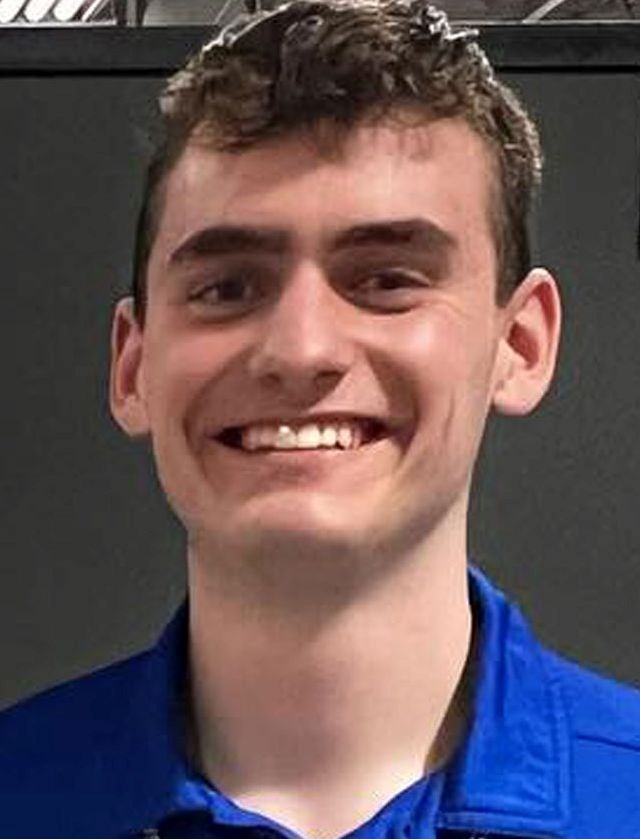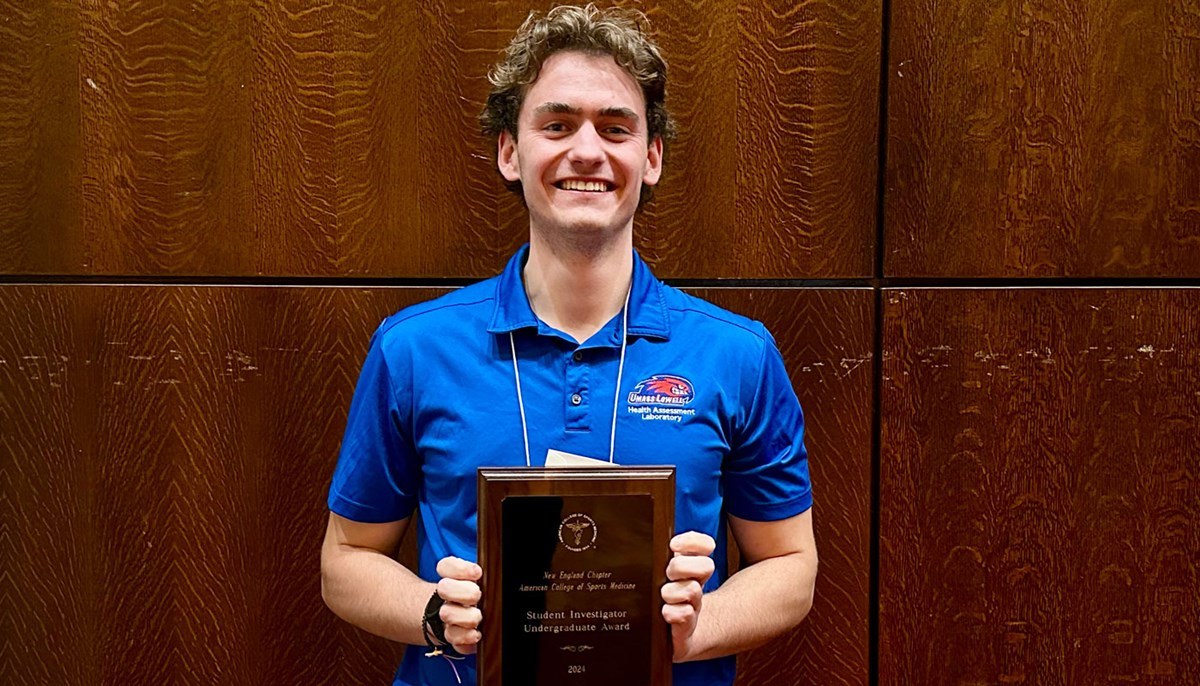For Donald Rogers ’24, the path to becoming a physician scientist started with an ankle injury in high school.
Rogers became interested in physical therapy while being treated for the injury, and he was accepted into UMass Lowell’s exercise science to doctor of physical therapy (DPT) program.
“I heard great things about UMass Lowell’s DPT program while I was in high school and wanted to graduate with a minimum amount of debt,” says Rogers, who grew up in Foxborough, Massachusetts.
Rogers was awarded an Immersive Scholarship, which pays for students to conduct research or study abroad after their first year of college. He conducted research with Associate Professor David Cornell of the Department of Physical Therapy and Kinesiology on the accuracy and reliability of a new finger sensor that measures heart rate variability; he presented his research results at four conferences.
“The professional experiences that I’ve had are incredible,” says Rogers. “I gained valuable skills in communication, critical thinking and leadership, which are valuable in any career.”
During his exercise science practicum, Rogers interned as a clinical exercise physiologist at Emerson Health in Concord, Massachusetts. There, he created cardiac rehab exercise plans, instructing patients through their plans and adjusting them based on progress.
“I learned a lot about cardiovascular medicine and disease during my internship, and it reaffirmed my interest in this field for my future career,” says Rogers, who also worked as a patient care technician at Emerson Health.
With all of this exposure to the health care environment, Rogers found that he enjoyed working with people on a day-to-day basis, and he wanted to help keep individuals and populations of people healthy. While he was enrolled in the exercise science program, Rogers was accepted into UMass Lowell’s accelerated bachelor’s-to-master’s degree program. In one year, he’ll earn a Master of Public Health degree that will provide knowledge in biostatistics and the social determinants of health.
“A lot of the research I was doing as an undergraduate had a link with cardiovascular and metabolic health, and I started to become interested in further understanding the factors that contribute to chronic disease on a population level,” says Rogers, who also conducted research on health disparities with Associate Professor Sabrina Noel of the Department of Biomedical and Nutritional Sciences and the director of the Center for Population Health.
Rogers is in the process of applying to combined medical doctor Ph.D. programs to further his career as a physician scientist.
“I want to be involved with both seeing patients and conducting research that improves the standards of care for my future patients and prevents chronic disease,” he says.


